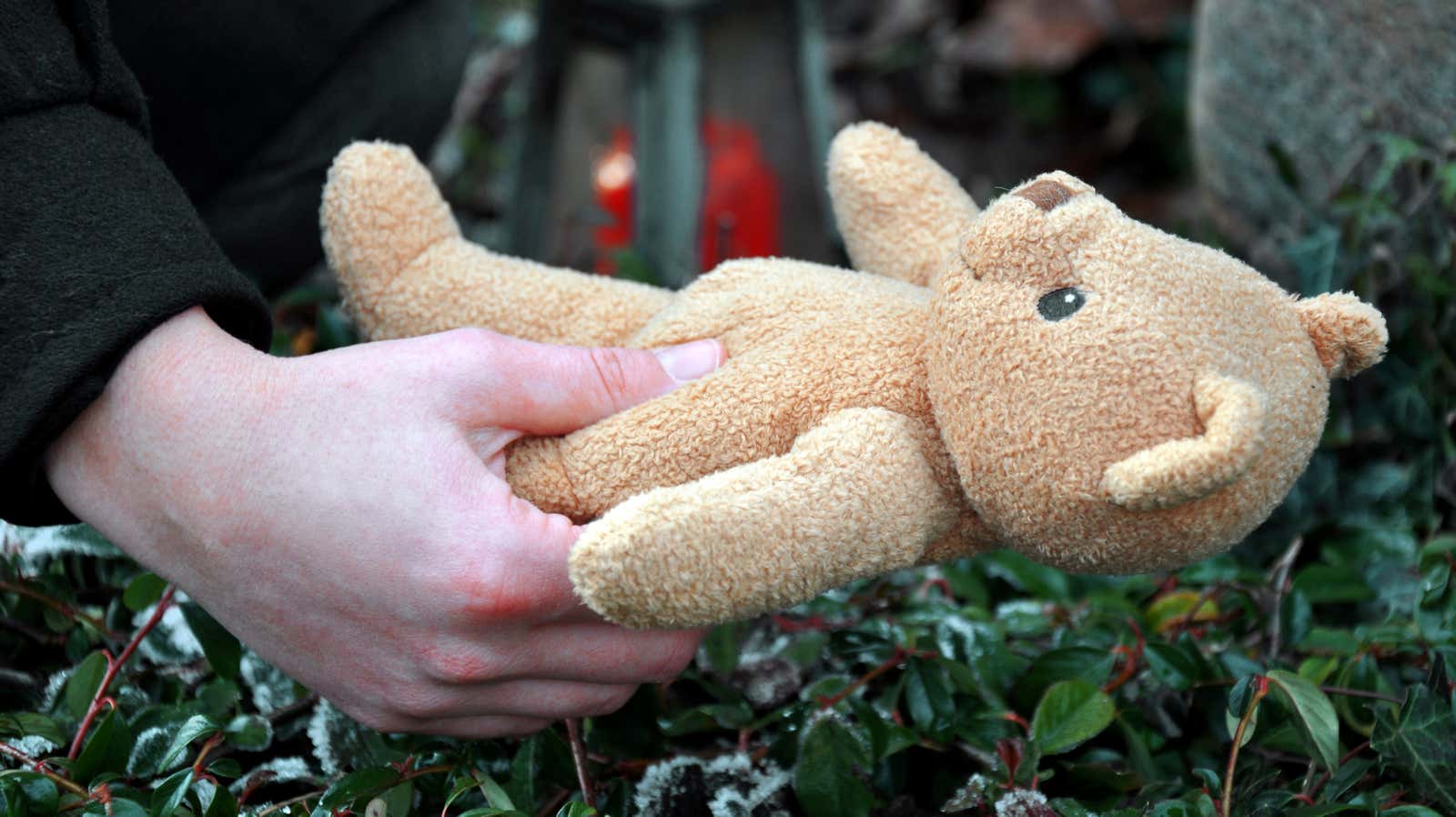How to Support a Friend Who Has Lost a Child

If any of your loved ones have ever lost a child, you know how devastating such a loss can be – and how utterly helpless it can seem to those who love them and cannot ease their pain. While it is impossible to “fix” this deep loss, there are things that friends and family can do to support them in times of grief.
Author Kimberly Calabrese, who lost her daughter Paris at six months, wrote the book What Do I Do? A step-by-step guide for friends and family in support of those who have lost a child, to help loved ones get through this tragic time – from the moment you receive the message that their child has died and into the future.
Go right now
According to Calabrese, one of the most important things a close friend can do right after losing a child is to show up. Don’t feel like someone else is taking the reins into their own hands to help with funeral arrangements, home cooking, phone calls, and airport transfers. Even if your loved one has a large family, he still needs you.
“When we lose a child, we lose our next of kin to support in the beginning because they grieve too,” she says. “But our friends think we have all this family support around us.”
Close friends of the parents should come together and share tasks – and at the top of the list should be assigned someone to be with the parents at all times, in particular to take notes of the funeral and make sure all necessary details are followed. addressed. But Calabrese also emphasizes that someone should always be around the living siblings of the deceased child, play with them, talk to them, and take them out of the house for breaks as needed.
“Imagine that you find out that your brother or sister is dead and you don’t even understand what that means,” she says. “And everyone is crying and people forget about them because everyone is so focused on their parents.”
Don’t ask what they need
It’s easy to feel helpless when someone you love is going through something as terrible and irreparable as the loss of a child. You want to help, but you don’t know how to help. One thing you shouldn’t be doing? Ask them how you can help. “They have no idea what they need,” says Calabrese.
“They ask us (what we need), but we look at you like you have ten eyes, because we don’t even understand what just happened,” she says.
Instead, make a list of everything you do on a specific day, week, or month. You wash and cook dinner for your living children, you go to the grocery store and take out the trash. This is what they need, especially if they can meet with a large number of children to complete a certain task or assignment.
Stop by once a week
After the funeral is over and most of your extended family and friends have moved out of town, physically check yourself once a week for at least the first year. Be consistent and adamant. Bring them a salad, grab them for coffee, or just stop by to start the vacuum and make a list to take to the grocery store.
“Especially if there are brothers and sisters,” says Calabrese. “How do we know they get out of bed at all? You won’t know until you come. “
If you are a distant friend, call at least once a week and keep in touch with their local friends or family to make sure someone physically shows up frequently to check on them and offer support.
Remember important dates
Contact them on important dates. Their child’s birthday and the anniversary of their death are obvious, but remember to celebrate them on Mother’s Day or Father’s Day. Come on other holidays too, especially the first year, and especially if they have other children, Calabrese said. They may find it difficult to want to celebrate something, and friends may step in to make the holidays special for other children.
Also, keep inviting them to your own celebrations. They may not make it to your bridal shower or your child’s birthday party (and don’t take it personally if they don’t), but Calabrese says you should keep turning them on. They will come when they are ready.
Don’t forget dad
According to Calabrese, friends of a grieving father sometimes have to do more work than friends of a mother in terms of getting them to talk about their loss.
“Parents really need equal support, but I noticed (in parent support groups) that men joined on their own 7-10 years after losing their child,” Calabrese says. “Men are taught that you don’t cry, you don’t grieve, you say that everything is all right, and then it catches up with them.”
Show up often and constantly, even if outwardly it seems that one of the parents is doing better than the other.
Be a good listener
You don’t need to have an answer or an explanation for why your loved one is going through something so devastating. And if you feel the urge to come up with one thing, fight hard with it. When they are ready or need to talk about it, your role is just to listen. They say you are listening.
If there is a pause in the conversation and you don’t know what to say, Calabrese suggests you just try: “I’m so glad I can be here to listen.”
“We need to tell our story over and over again,” she says. “We’re taking something new out of this by being able to reproduce what happened … and you give us permission to keep talking.”